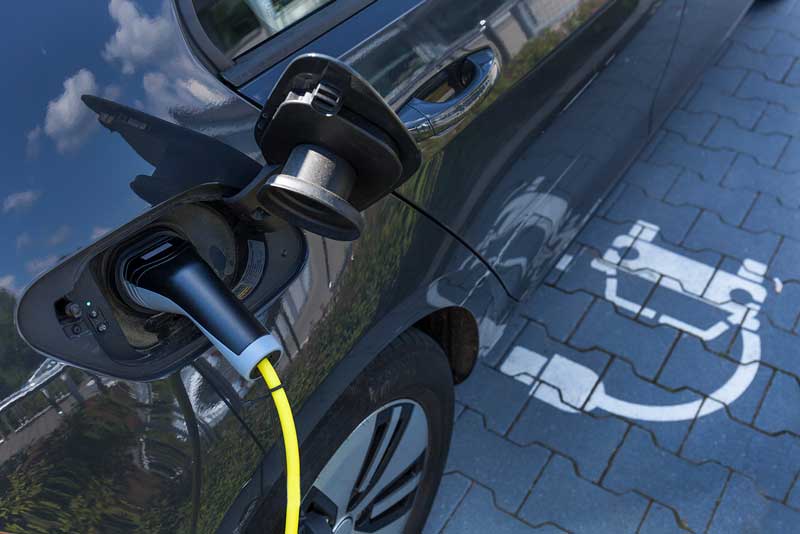
Business EV Charging
Be the change you want to see – join the forward-thinking Oregon businesses who are demonstrating their commitment to reducing greenhouse gas emissions by offering electric vehicle charging to their customers, tenants and employees.
Electric vehicle charging at your business? Yes!
More and more businesses are adding electric vehicle charging for their employees, customers and even the public. With more electric vehicles on the road, your business can be a part of the growing network of chargers for people to use at work and throughout their day!

Get a rebate for your business EV charger
We provide financial incentives to provide charging stations and help encourage EV adoption at your workplace or commercial property.
EV charging is as easy as 1, 2, 3
Planning an EV charging project at your business is a straightforward process. We’ll walk you through planning the project, determining installation requirements, and promoting and maintaining the chargers.
1. Planning
Identify key stakeholders
Contact PGE, an electrical contractor and the property manager.
Evaluate charging needs
Establish how many chargers and what types of chargers to install.
Check the electrical service
A licensed electrician can assess the building’s electrical capacity.
Choose a site
To keep cost low, locate chargers as close to existing infrastructure as possible.
2. Installation
Select chargers
Consider a networked charger for smart charging capabilities.
Estimate costs
Get multiple bids from trusted vendors.
Future proof
Plan to include extra conduit and upsize equipment to account for future EV chargers.
Build
Use contractors with EV experience.
3. Follow-up
Promote
We can suggest creative campaigns to drive interest to the chargers.
Maintain
Contract with an equipment provider or use an internal crew.
Check-in
Re-evaluate in a few years to keep up with EV growth and technology.
Frequently asked questions
Planning an EV charging project at your business is a straightforward process. We’ll walk you through planning the project, determining installation requirements, and promoting and maintaining the chargers.
What charging level is needed?
Level 2 is the most common EV charging for the workplace, fleets, tenants and the public.
Will it charge all makes/models of EVs?
The J1772 connector is standard for level 2 charging and will charge all major EV models. For DC fast charging there are three connector types: CCS (standard for most vehicles), CHAdeMO (standard on some Japanese vehicles) and Tesla (proprietary for Tesla vehicles)
Should EV charging be free or pay-to-use?
If an EV charger is used 4 hours per day, it would cost about $3/day in electricity. Many workplaces and other businesses offer free charging as an employee benefit and/or a reward for choosing clean transportation options.
With a pay-to-use model, consider what payment methods are supported by the EV charger. Some require users to have an account and membership card or app associated with that network; while others have a guest payment method or credit card readers.
Where do EV chargers get placed?
To reduce cost, situate it near electrical infrastructure. It is common to place a dual-port EV charger (a single unit with two cords) at the curb, along the line between two parking spaces.
Are there ongoing costs for the EV chargers?
Budget for annual maintenance costs, as well as cellular data and software fees for networked chargers.
Drive Change Fund

Looking for funding for a transportation electrification project?
From transit buses and passenger vehicles to electric bikes and community service vehicles, the PGE Drive Change Fund is all about electrifying transportation in Oregon. Do you have a local electric vehicle adoption, EV charging infrastructure or education project you would like us to fund? Get in touch.

Are you looking to electrify your fleet? We can help.
An EV fleet can lower your operating costs, maintenance costs and support your company's sustainability goals. It's no wonder more and more fleets are going electric.